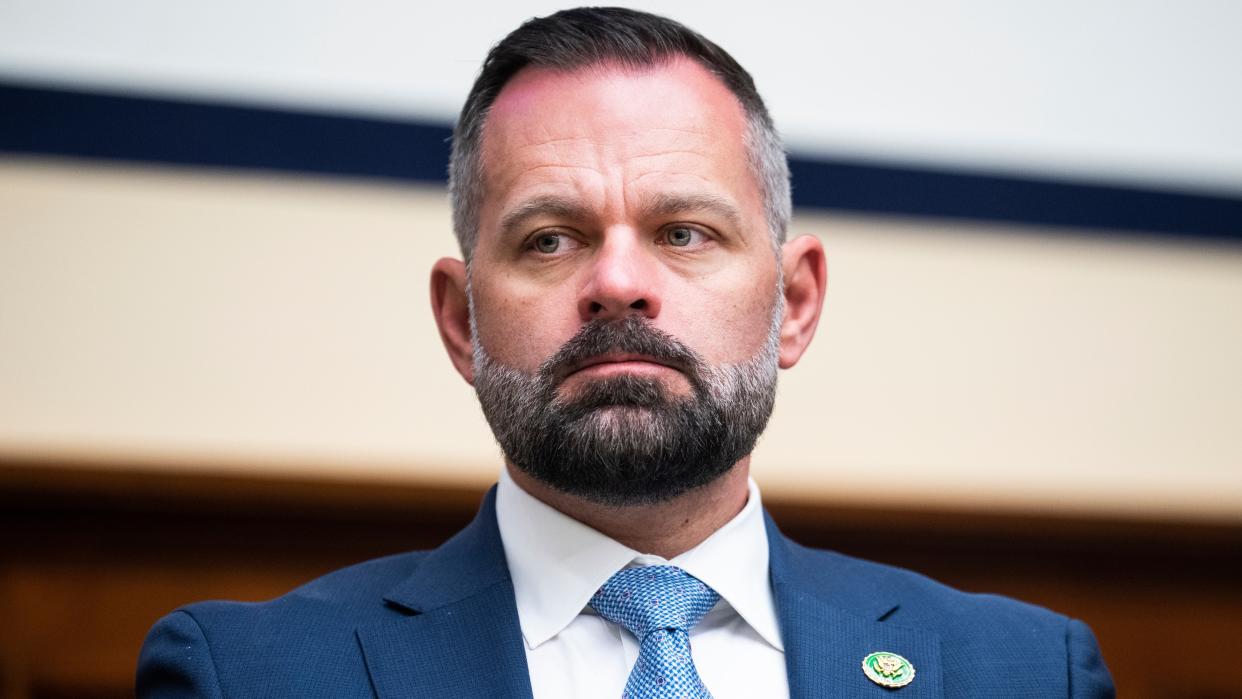Rep. Michelle Salzman may be giving Florida a clearer picture of what hemp legislation could pass out of the Legislature this year.
The Pensacola Republican is leading the effort to craft House legislation and will likely unroll an amendment on Monday to legislation that could impose taxes on THC-infused drinks and other products.
The bill (HB 7029) would tax hemp goods similar to cigarettes and wines.
“I think we’re just going to give it a syntax on the sales so when you buy that, when you purchase a product, it’ll be a 20% markup or whatever instead of collecting the taxes in the forefront,” Salzman said. “We’re considering ways to change the collection model so we don’t have to worry about people circumventing paying the 20% of wholesale, or whatever it is for that particular product.”
An amendment should have details ready before the legislation is presented to the House Budget Committee on Tuesday.
Representatives on April 1 advanced two pieces of legislation out of the House Housing, Agriculture & Tourism Subcommittee with bipartisan support, with neither bill receiving a dissenting vote. Salzman hopes to keep the House unified around legislation and has reached out for input from all 120 members as the bill works its way through The Process.
She held a lengthy meeting with House Commerce Committee staff on a separate policy bill (HB 7027) that would mandate the testing of consumable and hemp products to ensure they meet specific safety standards.
As written now, the legislation would block the sale of the products at any businesses where those under 21 can enter. But before the bill lands in front of the Commerce Committee, Salzman expects to have an amendment that would ensure at least beverages infused with THC from hemp can remain on gas station and convenience store shelves. With the federal government allowing products to exist and a major sector already formed around hemp beverages, she said House legislation likely won’t try to stop the sale of drink products entirely in places where they are available now.
“I just can’t see unwinding that machine, and in the third largest economy In America,” Salzman said. “So we just have to be cognizant of the businesses as well as the will of Floridians, while keeping the safety of the citizens and protecting kids as our number one priority.”
The bill sets out several regulations on packaging, Salzman’s top priority. The bill said hemp consumables cannot be marketed with colorful labeling or cartoon mascots that would attract children’s interest. After consulting with business interests, she does say that the legislation will likely allow logos that cover no more than 20% of packaging, something she called a “huge gift” to the industry.
The Senate has already passed hemp legislation as a single bill (SB 438) that would significantly restrict signage promoting products outside the business premises. The House hasn’t focused as rigidly on that.
“We are not discussing the signage outside. We’re not discussing the signage inside,” Salzman said. “We’re only discussing the packaging and the caps and the distribution.”
But she doesn’t want to see hemp-infused gummies or brownies that children could mistake for treats and consume as such. She knows that remains controversial among retailers and manufacturers of the products, but it’s one area Salzman has been unwilling to budge.
“The moment they take that package out of the store, it is one color period, with a description, with the warnings, with all of the stuff so it doesn’t look exciting,” Salzman said. “No kid is going to go, ‘Oh, that looks like I want to do that today.’ They would have to know what it was, and they would have to intentionally be doing the drug. And that is the whole purpose of the packaging requirements to be that way.
“That’s the hardest pill for a lot of these people to swallow. But every single one of them have said, ‘We’ll make it work.’”
That legislation sets out laboratory standards and restricts the sale of THC products with a total delta-9 THC concentration greater than 0.3%. Salzman continues to examine the practicality of making the goods with manufacturers but remains concerned about how caps translate into products.
“The way that we have it written in the bill currently, it tells them how much additives they can have, and that’s really to prevent somebody from creating 100-milligram brownie that’s only a quarter of an inch thick, and then say that it’s got 50 doses in there,” she said. “So the weight limit as it pertains to THC content is critical, but the way it’s written, there are several manufacturers that are concerned with being able to sell their product with that.”
She offers an example of whether the same caps were applied to a corn chip and whether manufacturers could guarantee that the same balance in each chip meets the statutory limits in THC.
She expects conversations over the coming weeks with House leadership on how to translate the cap discussions into written policy and expects there to be further discussion with the Senate. She ultimately expects any disagreements on hemp to end up in conference, a rarity for policy as opposed to appropriations in the Legislature.
“You can conference on policy just like you conference on budget,” she said. “You just haven’t seen it in 20 years.”
Then there’s concern about where it goes once the Legislature finishes its debate. Last year, Gov. Ron DeSantis vetoed a regulation framework on hemp. But that’s why Salzman wants so much input now and why she pushed for a Committee bill instead of the House-run one of multiple pieces of competing hemp regulation filed this year.
If all concerns about hemp rules are aired in public before the bill passes, and so long as all business concerns outlined in DeSantis’ veto letter are addressed, she expects legislation to become state statutes.
Salzman stressed that if that happens, it will just be a starting point for implementing hemp regulations.
“We hope to get this across the finish line, the Governor signs it, and then next year, we reevaluate what’s next,” she said.
Post Views: 0

 Entertainment8 years ago
Entertainment8 years ago
 Politics8 years ago
Politics8 years ago
 Entertainment8 years ago
Entertainment8 years ago
 Entertainment8 years ago
Entertainment8 years ago
 Tech8 years ago
Tech8 years ago
 Tech8 years ago
Tech8 years ago
 Tech8 years ago
Tech8 years ago
 Politics8 years ago
Politics8 years ago











